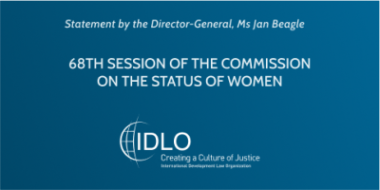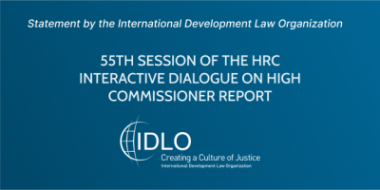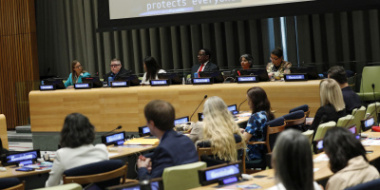Strengthening the domestic violence response in Mongolia
Domestic violence in Mongolia is increasingly recognized as a significant problem. Law enforcement officials report that in 2016 domestic violence cases increased by 25 per cent in the first seven months of the year compared to the previous year. In response, the Government of Mongolia has begun to take legislative and policy steps to improve its response to the issue. While important steps continue to be taken, significant challenges remain.











